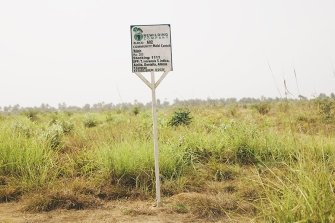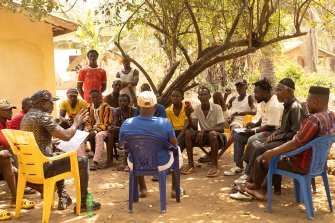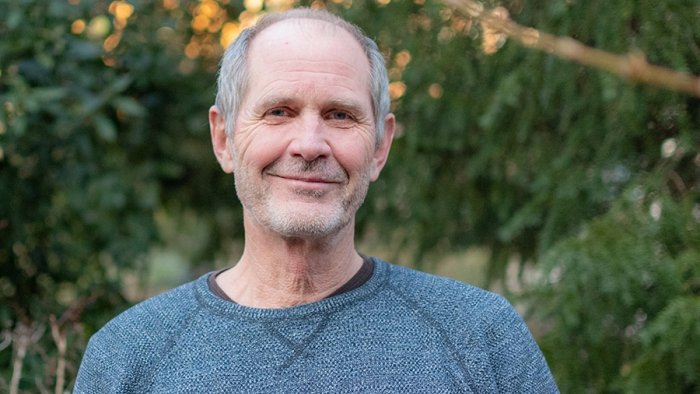Controversial carbon offset project spells hardship for local communities
The trade in carbon credits has become a lucrative business in recent years. In the West African country of Sierra Leone, international investors are planning large-scale tree plantations to be used for carbon offset projects. Yet, an investigation by Swiss Church Aid HEKS/EPER reveals that numerous farming families who own the land have apparently not agreed to the project in the manner prescribed by law. This would violate not just Sierra Leonean law, but also the principles held by Verra, the organisation that is expected to certify the carbon credits. The Swiss consulting firm Ecosecurities is also involved in the controversial project.
"Our production is climate-neutral". This is how many companies currently promote themselves around the world, even while continuing to emit large quantities of CO2 in some instances. The trick is for companies to purchase CO2 certificates from projects designed to reduce emissions or store carbon, for example, through reforestation. However, while this is a lucrative business for the suppliers of the certificates, it increases the global demand for land, and often ends up causing smallholder families in the Global South to lose control of their land, and by extension, their livelihoods.

This is the very prospect facing many families in the Port Loko region of Sierra Leone. There, the Canadian firm Carbon Done Right and its associate company Rewilding, itself domiciled in Sierra Leone, have launched a project to reforest at least 25,000 hectares of land for the purpose of storing more than 12 million tonnes of CO2 over 50 years. The companies are anticipating receipts of 300 to 450 million US dollars from the sale of the corresponding certificates.
Fears of land law violations
An investigation conducted by HEKS/EPER and four other NGOs from Sierra Leone raises serious doubts as to the legality of the project. Under Sierra Leonean land law, lease contracts require the written consent of 60 per cent of the members of a landowning family, and stipulates that they must be fully informed beforehand about the project planned for their land. The investor must then register that consent with the authorities. Only then can the land be sold or leased. The investigation included surveying residents of 25 villages, and it points strongly towards non-compliance of these stipulations. Besides, Carbon Done Right and Rewilding provided insufficient written proof when this was requested by the research team.
In addition, this situation is believed to contravene the principle of "free, prior and informed consent" (FPIC), an important criterion espoused by Verra, the entity expected to certify the carbon credits from the project so that they can become tradable. At the request of Rewilding, the Geneva-based consulting firm Ecosecurities prepared the requisite application and the corresponding documentation. Some key assertions made by Ecosecurities in the documentation nonetheless contradict the findings of the investigation.
Many contradictions
Ecosecurities writes that the Rewilding project is based on continuous engagement with local communities, a robust FPIC strategy, and a participatory, inclusive approach. This, however, is at odds with the findings of the research team and with statements made by interested landowners. Indeed, almost all the women interviewed went on record stating that they were not sufficiently included in the negotiations on the land deal with Rewilding.
Many of the landowners interviewed by the research team also had no idea what CO2 certificates were, nor were they aware that, according to its application to Verra, Rewilding was expecting to use the land for 50 years. During the negotiations, the talk had mostly been of just 25 years, as a longer lease would have been totally unacceptable to many stakeholders. It is also unclear how the land owners will obtain the 10-per cent share of profits promised by Rewilding. Another astounding piece of information is that Rewilding is apparently anticipating receipts of 360 US dollars per hectare of land per annum, while the rent paid to landowners will be a mere 14 US dollars per hectare per annum.


